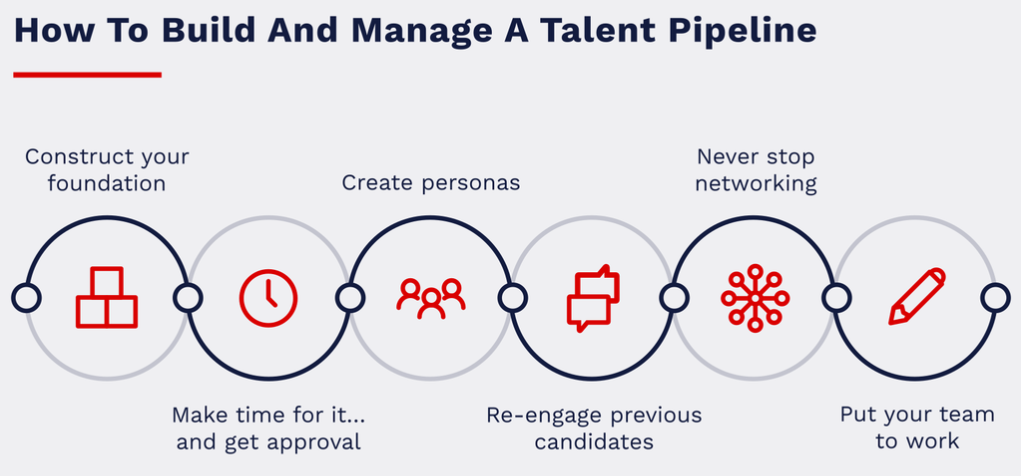Talent Pipeline
What is Talent Pipeline?
Definition:
A talent pipeline refers to a strategic approach used by organizations to proactively identify, attract, develop, and retain qualified individuals for current and future job openings. It involves nurturing relationships with potential candidates, both internally and externally, to ensure a steady flow of talent that aligns with the organization’s goals and needs.
Analogy:
Think of a talent pipeline as a well-designed irrigation system for a farm. Just as an irrigation system ensures a constant supply of water to nourish crops and sustain growth, a talent pipeline enables organizations to cultivate and sustain a continuous stream of skilled individuals to meet their workforce needs.
Further Description:
A talent pipeline encompasses several key components and practices:
Talent Identification: Organizations identify potential candidates through various channels, including internal talent pools, employee referrals, networking events, and partnerships with educational institutions.
Relationship Building: Establishing and nurturing relationships with candidates through engagement initiatives, such as networking events, informational interviews, mentorship programs, and online communities.
Skill Development: Providing opportunities for skill development and career advancement through training programs, workshops, coaching, and mentorship initiatives.
Succession Planning: Identifying high-potential employees and developing succession plans to ensure smooth transitions for key roles within the organization.
Diversity and Inclusion: Promoting diversity and inclusion initiatives to attract and retain a diverse talent pool that reflects the organization’s values and enhances innovation and creativity.
Why is Talent Pipeline Important?
Strategic Planning: A well-managed talent pipeline enables organizations to anticipate future staffing needs and proactively address skill gaps and succession planning requirements.
Competitive Advantage: Organizations with a robust talent pipeline have a competitive advantage in attracting top talent and responding effectively to changing market dynamics and business challenges.
Retention and Engagement: Investing in talent development and career advancement opportunities enhances employee engagement and loyalty, reducing turnover rates and retaining institutional knowledge within the organization.
Innovation and Adaptability: A diverse and skilled talent pipeline fosters innovation, creativity, and adaptability, enabling organizations to stay ahead of industry trends and capitalize on emerging opportunities.
Examples and Usage:
Succession Planning: Organizations identify and groom high-potential employees for leadership positions through structured development programs and mentorship initiatives.
Internship and Co-op Programs: Companies establish partnerships with educational institutions to recruit interns and co-op students, providing hands-on experience and potential talent pipelines for future hires.
Talent Communities: Organizations create online talent communities and alumni networks to stay connected with former employees and potential candidates, fostering ongoing engagement and relationship-building.
Key Takeaways:
- A talent pipeline is a strategic approach to identifying, attracting, developing, and retaining qualified individuals for current and future job openings.
- Components include talent identification, relationship building, skill development, succession planning, and diversity and inclusion initiatives.
- Benefits encompass strategic planning, competitive advantage, retention and engagement, innovation, and adaptability.
- Examples of talent pipeline practices include succession planning, internship programs, and talent communities
Table of Contents





